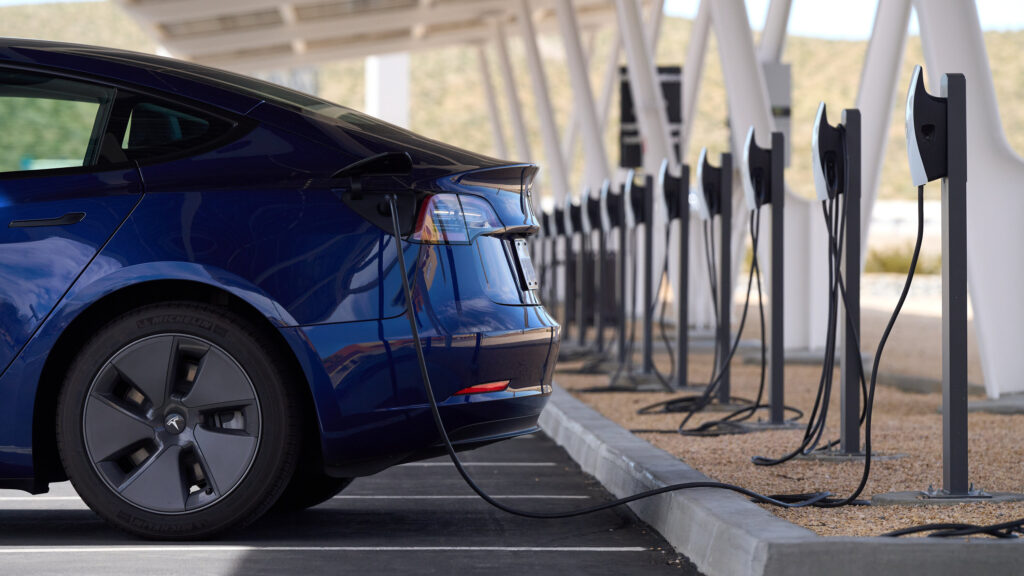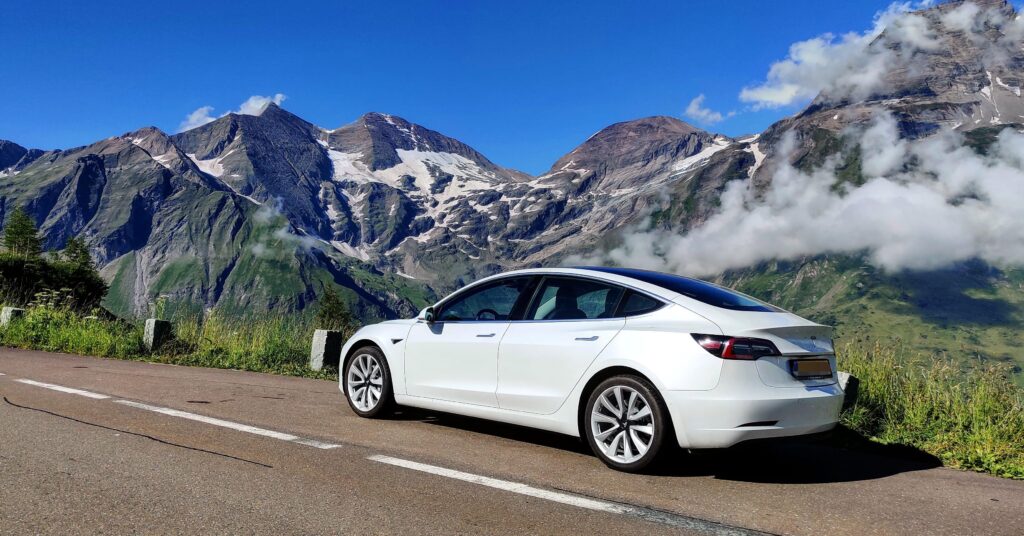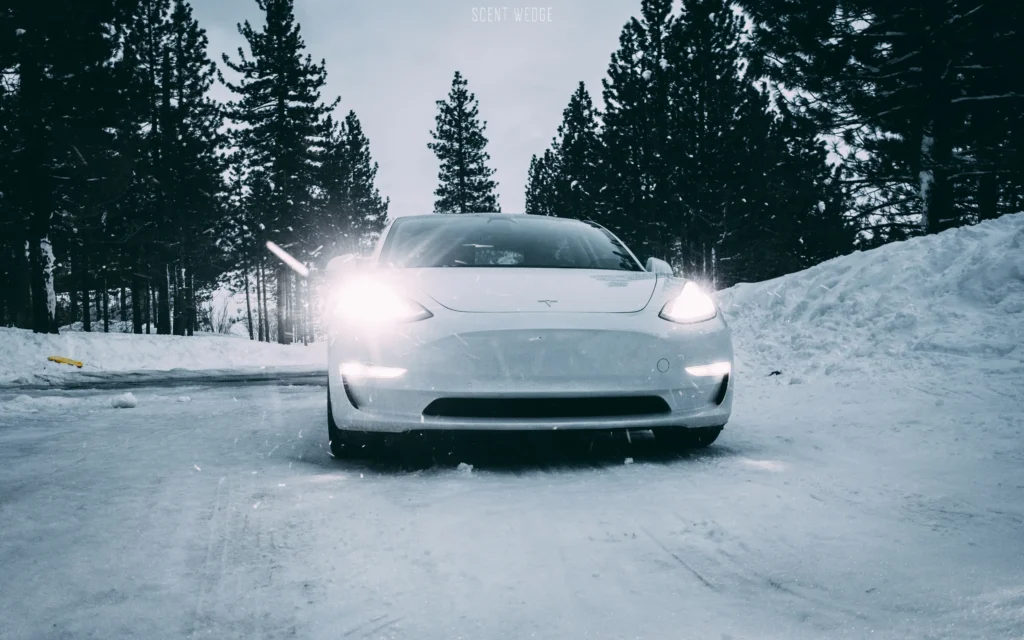is buying a Tesla worth it? The electric vehicle (EV) market has experienced a massive surge in recent years, and at the center of this transformation is Tesla. As the most recognized and pioneering EV manufacturer, Tesla has earned its reputation for innovation, design, and sustainability. But as many potential buyers ask, With high upfront costs, evolving technology, and increasing competition in the EV space, this is a question that requires deep exploration.
In this article, we’ll look at all the factors that contribute to Tesla‘s worth—from performance and technology to costs and environmental impact. Whether you’re considering joining the electric revolution or still sitting on the fence, this guide will help you decide if buying a Tesla is a wise investment.
Contents
- 1 Tesla’s Standout Features: What Makes It Unique?
- 2 Cost: Upfront Investment vs. Long-Term Savings
- 3 Environmental Impact: Driving Green and Reducing Your Carbon Footprint
- 4 The Tesla Ownership Experience: A Seamless Blend of Convenience and Innovation
- 5 Resale Value: Does Tesla Hold Its Value?
- 6 Tesla’s Standout Features: What Makes It Unique?
- 7 Environmental Impact: Driving Green
- 8 Ownership Experience: Convenience Meets Innovation
- 9 Resale Value: Does Tesla Hold Its Value?
- 10 FAQ:
- 10.0.1 1. How much does it cost to buy a Tesla?
- 10.0.2 2. Is Tesla’s Autopilot and Full Self-Driving worth it?
- 10.0.3 3. How long does a Tesla battery last, and how much does it cost to replace?
- 10.0.4 4. How much can you save on fuel costs by owning a Tesla?
- 10.0.5 5. Are there any government incentives for buying a Tesla?
- 10.0.6 6. How does Tesla’s Supercharger network compare to other charging networks?
- 10.0.7 7. Does a Tesla hold its value well compared to other cars?
- 11 Final Verdict: Is Buying a Tesla Worth It?
Tesla’s Standout Features: What Makes It Unique?
To understand is buying a Tesla worth it, we first need to highlight what sets Tesla apart from traditional vehicles and other electric cars. Tesla has built its reputation on the pillars of cutting-edge technology, performance, and a commitment to sustainability. Here’s what makes a Tesla unique:
- Electric Powertrain: Tesla’s fully electric powertrain offers instantaneous torque, giving drivers a smooth yet powerful driving experience. For example, the Model S Plaid can reach 0-60 mph in under 2 seconds, making it one of the fastest production cars available.
- Autopilot & Full Self-Driving (FSD): Tesla’s Autopilot system, which includes advanced driver-assist features like automatic lane-changing and cruise control, is a standout feature. Full Self-Driving (FSD) aims to take this technology to another level by promising complete autonomous driving in the future. However, FSD is still under development, and the full capabilities are not yet available.
- Over-the-Air Software Updates: Unlike traditional vehicles, which require dealership visits for updates, Tesla cars receive continuous over-the-air updates. These updates improve performance, add new features, and refine safety systems, giving Tesla owners the feeling of having an ever-evolving car.
- Supercharger Network: Tesla’s proprietary Supercharger network makes long-distance travel easier and quicker for Tesla owners. Superchargers provide fast recharges at convenient locations across highways and cities, solving a common pain point for EV owners—range anxiety.
For buyers prioritizing cutting-edge technology, buying a Tesla can be an exciting investment. The performance and tech features are unmatched in many ways, providing an experience unlike that of traditional cars.
Cost: Upfront Investment vs. Long-Term Savings
The high upfront cost is often the most significant concern when answering is buying a Tesla worth it. Tesla vehicles are more expensive than many gas-powered cars and even some EVs, with the Model 3 starting at around $40,000, and more luxurious models like the Model S and Model X exceeding $100,000. But the value of buying a Tesla is not solely in the upfront cost; long-term savings can dramatically shift the equation.

1. Upfront Costs
Tesla’s Model 3—the most affordable option—starts at around $40,000, while higher-end models like the Model S and Model X can easily surpass $100,000. Compared to traditional internal combustion engine (ICE) vehicles, these prices may seem steep, particularly for buyers who are used to more budget-friendly options. However, Tesla’s pricing structure reflects the premium technology and performance that comes with the vehicle, as well as the brand’s reputation for innovation.
2. Fuel Savings
One of the primary advantages of owning a Tesla is the savings on fuel costs. Charging an electric vehicle is generally much cheaper than filling up a gas tank. Tesla owners who charge their vehicles at home using a standard outlet or a Wall Connector find the cost of electricity per mile is significantly lower than the cost of gasoline. Furthermore, Tesla’s Supercharger network offers quick and affordable charging for longer trips.
For those who drive frequently, especially over long distances, the fuel savings alone can make buying a Tesla worth it in the long run. When compared to gasoline prices, the lifetime cost of fueling a Tesla is considerably lower, making it an economical choice over several years of ownership.
3. Maintenance Costs
Tesla vehicles have fewer mechanical parts than traditional internal combustion engine (ICE) vehicles, which results in lower maintenance costs. Electric vehicles don’t require oil changes, exhaust system repairs, or transmission services. While owners will still need to replace brake pads and rotate tires, overall, the maintenance of a Tesla is much simpler and less costly than a gas-powered vehicle.
However, there are some Tesla-specific costs to keep in mind, such as the replacement of the car’s battery over time. Although Tesla batteries are designed to last several hundred thousand miles, replacing a battery can be a significant expense. Still, Tesla’s battery warranty typically lasts 8 years or 100,000–150,000 miles, which helps mitigate concerns about major repairs during the initial ownership period.
4. Tax Incentives and Rebates
Another key financial consideration in determining is buying a Tesla worth it is the availability of tax incentives and rebates. In many countries, including the United States, EV buyers are eligible for federal tax credits (up to $7,500) and state-level incentives that can significantly lower the overall cost of purchasing a Tesla. These incentives are designed to encourage the adoption of electric vehicles, making the financial aspect of buying a Tesla more appealing.
Environmental Impact: Driving Green and Reducing Your Carbon Footprint
A major reason many people ask is buying a Tesla worth it is because of the environmental benefits of owning an electric vehicle. Tesla’s vehicles produce zero tailpipe emissions, making them an environmentally friendly alternative to gas-powered cars. For drivers who are conscious of their carbon footprint, Tesla offers an opportunity to reduce their contribution to air pollution and greenhouse gas emissions.
Moreover, Tesla’s commitment to renewable energy goes beyond its electric vehicles. The company is heavily involved in the production of solar energy products, such as solar panels and the Powerwall, which allows homeowners to store solar energy for future use. Tesla owners can integrate these technologies with their vehicle ownership, making their transportation and energy consumption even more sustainable.
However, it’s important to consider the energy mix of the region where you live. If the electricity you use to charge your Tesla comes from renewable sources like wind or solar, your Tesla will have an even lower environmental impact. On the other hand, if your region relies heavily on coal or natural gas for electricity, the overall environmental benefit of driving a Tesla may be reduced.
For buyers focused on sustainability, buying a Tesla is not just worth it—it’s one of the best ways to reduce your personal environmental impact.
The Tesla Ownership Experience: A Seamless Blend of Convenience and Innovation
Tesla has created a unique ownership experience that blends convenience and innovation in ways that traditional cars simply can’t match. From the Tesla app, which lets you remotely monitor and control your vehicle, to regular over-the-air software updates, Tesla ensures that its vehicles feel cutting-edge long after you’ve driven them off the lot.
Tesla’s Autopilot and Full Self-Driving (FSD) packages also set it apart in terms of future-ready technology. Autopilot enables your Tesla to steer, accelerate, and brake automatically under certain conditions. FSD aims to take that capability further by eventually offering complete autonomous driving, though this feature is still under development. The additional cost of the FSD package ($15,000) is a significant consideration, but for tech enthusiasts and early adopters, it’s an exciting glimpse into the future of driving.
The convenience of home charging is another key factor. With a Tesla Wall Connector, you can charge your vehicle overnight, eliminating the need for frequent stops at gas stations or public charging stations. Many owners find this convenience alone to be a game-changer, making buying a Tesla more than worth it for day-to-day driving.
Resale Value: Does Tesla Hold Its Value?

When determining is buying a Tesla worth it, you should also consider the vehicle’s resale value. Tesla vehicles have historically held their value well compared to other electric vehicles and many traditional gas-powered cars. This is due to the brand’s reputation, the continual software updates, and the growing demand for electric vehicles.
A strong resale value means that even if you decide to sell your Tesla after a few years, you’re likely to recover a significant portion of your initial investment. While no car is immune to depreciation, Tesla’s unique place in the market helps it retain more of its value than many competitors.
Tesla’s Standout Features: What Makes It Unique?
Tesla’s appeal isn’t just about the fact that it’s electric—there’s a lot more beneath the surface. The company has built a reputation for delivering cutting-edge technology, remarkable performance, and an overall ownership experience that’s difficult to match. Here are some of Tesla’s most prominent and unique features:
1. Electric Powertrain
Tesla’s electric powertrain provides instant torque, which delivers impressive acceleration and a smooth driving experience that gas-powered cars can’t replicate. Whether you’re behind the wheel of a more affordable Model 3 or the luxury Model S, the seamless acceleration is one of the most exhilarating aspects of driving a Tesla. Take, for example, the Model S Plaid—with a 0-60 mph time of less than 2 seconds, it competes with some of the fastest supercars in the world.
While most people don’t buy cars for speed alone, this level of performance is a key differentiator for Tesla, making it appealing to those who love driving or want to experience the thrill of high acceleration without compromising on efficiency.
2. Autopilot and Full Self-Driving (FSD)
Tesla’s Autopilot feature is one of the most advanced driver-assistance systems available today. It can handle routine driving tasks such as steering, accelerating, and braking within its lane. Although Autopilot doesn’t make the car fully autonomous, it adds a layer of convenience and safety to the driving experience, especially on long highway trips.
Tesla’s vision for the future, however, is even more ambitious. The Full Self-Driving (FSD) package aims to enable a car to navigate without human intervention. While FSD is still a work in progress and hasn’t yet delivered fully autonomous driving, Tesla continuously updates the system through over-the-air updates. For tech enthusiasts and early adopters, FSD represents the future of transportation, offering a glimpse into what fully autonomous driving could look like.
3. Over-the-Air Software Updates
Another unique aspect of owning a Tesla is the over-the-air (OTA) updates. Tesla vehicles receive regular software updates that add new features, improve performance, and even enhance safety. Imagine buying a car that gets smarter and better over time, much like your smartphone or computer. This ability to continually evolve makes Tesla vehicles feel fresh and future-proof, keeping them relevant even years after purchase.
From entertainment upgrades (like video streaming services and video games) to efficiency tweaks, Tesla ensures that your vehicle remains at the forefront of innovation without needing a visit to the dealership.
4. Supercharger Network
One of the biggest concerns for EV buyers is range anxiety—how far the car can travel before needing a recharge. Tesla has addressed this issue with its robust and expanding Supercharger network. Unlike many other EV manufacturers that rely on third-party charging stations, Tesla operates its own network of high-speed charging stations, strategically located across highways, cities, and even remote areas.
These Superchargers can recharge a Tesla to 80% in just about 30 minutes, making long road trips not only possible but also convenient. This network gives Tesla owners confidence that they can drive long distances without being limited by charging infrastructure. For frequent travelers, this feature alone can make buying a Tesla worth it.

Environmental Impact: Driving Green
Tesla’s mission is rooted in sustainability, and one of the main reasons people ask is buying a Tesla worth it is because of its environmental benefits. As an all-electric vehicle, a Tesla produces zero tailpipe emissions, making it a cleaner alternative to traditional gas-powered cars.
If you’re concerned about climate change, buying a Tesla can be a step towards reducing your carbon footprint. While the overall environmental impact of a Tesla depends on factors like how the electricity used to charge it is generated, EVs, in general, are far less polluting than gas-powered vehicles. If you live in an area where renewable energy is abundant (solar, wind, or hydropower), driving a Tesla can be even more environmentally friendly.
2. Sustainability Beyond the Vehicle
Tesla’s commitment to sustainability goes beyond its cars. The company also focuses on renewable energy solutions, such as solar panels and Powerwall home batteries. This integration of renewable energy products with the Tesla ecosystem allows owners to generate, store, and use clean energy for both their home and vehicle, further reducing their environmental impact.
For eco-conscious buyers, buying a Tesla isn’t just about owning a car—it’s about contributing to a sustainable future.
Ownership Experience: Convenience Meets Innovation
The overall ownership experience of a Tesla is unlike that of a traditional car. From the Tesla app, which allows you to remotely control and monitor your vehicle, to the convenience of home charging, Tesla has redefined what it means to own a car in the 21st century.
Tesla’s Autopilot and Full Self-Driving capabilities are also a significant part of the ownership experience, adding convenience and safety to everyday driving. Although FSD is not yet fully functional, the promise of future autonomy is a major draw for many buyers.
Another aspect of the ownership experience is the Tesla community. Tesla owners are known for their loyalty and enthusiasm, with many forming strong connections with other owners through online forums, local clubs, and social events.
Resale Value: Does Tesla Hold Its Value?
Another important consideration in determining is buying a Tesla worth it is resale value. Tesla vehicles tend to hold their value better than many other electric vehicles, and even some traditional cars. This is partly because of Tesla’s continuous software updates, strong brand reputation, and growing demand for EVs.
For buyers concerned about depreciation, Tesla offers a solid investment. While no vehicle is immune to losing value over time, Tesla’s innovation
FAQ:
1. How much does it cost to buy a Tesla?
The price of a Tesla varies depending on the model. The most affordable option, the Tesla Model 3, starts around $40,000. The Model Y is priced between $45,000 and $65,000. High-end models like the Model S and Model X can cost upwards of $90,000 to $120,000, depending on features and configurations. Keep in mind that potential savings, such as tax credits and lower fuel/maintenance costs, may offset some of the initial expense.
2. Is Tesla’s Autopilot and Full Self-Driving worth it?
Tesla’s Autopilot is a helpful driver-assistance system that handles highway driving tasks like steering and maintaining speed, but it does not make the car fully autonomous. The Full Self-Driving (FSD) package offers advanced features like automatic lane changes and parking, but full autonomy is still under development. Whether it’s worth the additional cost depends on how much you value cutting-edge tech and convenience for future update
3. How long does a Tesla battery last, and how much does it cost to replace?
Tesla’s battery is designed to last between 300,000 to 500,000 miles or 10-15 years, depending on usage. Tesla offers an 8-year warranty with mileage limits (100,000 to 150,000 miles, depending on the model). If a battery replacement is needed after the warranty expires, it can cost between $12,000 and $20,000, though this is expected to decrease over time as battery technology advances.
4. How much can you save on fuel costs by owning a Tesla?
Compared to gas-powered vehicles, Tesla owners can save a significant amount on fuel costs. Charging a Tesla at home costs roughly $12 to fully charge the battery, depending on local electricity rates. This is far cheaper than filling up a gas tank, especially with rising fuel prices. If you drive long distances or frequently, the savings could be substantial over time.
5. Are there any government incentives for buying a Tesla?
Yes, there are various government tax incentives and rebates for electric vehicle (EV) purchases, including Tesla. In the U.S., federal tax credits of up to $7,500 may be available for qualifying Tesla models. Some states and cities offer additional rebates or tax incentives, further lowering the purchase price. It’s worth checking your local government programs to see what incentives apply.
6. How does Tesla’s Supercharger network compare to other charging networks?
Tesla has one of the most extensive and reliable Supercharger networks in the world. These high-speed charging stations can recharge a Tesla up to 80% in about 30 minutes, making long-distance travel convenient. Unlike some EV manufacturers that rely on third-party chargers, Tesla’s network is exclusively for its owners, ensuring faster, more accessible charging.
7. Does a Tesla hold its value well compared to other cars?
Yes, Teslas tend to hold their value better than most other electric and traditional cars. Factors like ongoing software updates, brand reputation, and growing demand for electric vehicles contribute to Tesla’s strong resale value. Even though all cars depreciate over time, Tesla’s ability to maintain cutting-edge technology helps its vehicles retain value longer than many competitors.
These FAQs help address common concerns and considerations potential buyers may have when deciding if buying a Tesla is worth it.

Final Verdict: Is Buying a Tesla Worth It?
After examining all aspects—performance, technology, cost, environmental impact, and ownership experience—it’s clear that buying a Tesla offers significant advantages. The initial cost may be high, but long-term savings on fuel and maintenance, plus available tax incentives, can offset much of that upfront expense. For those focused on sustainability, Tesla’s zero-emission vehicles provide a meaningful way to reduce your environmental footprint.
Tesla also stands out for its innovation and future-ready technology, with features like Autopilot and Full Self-Driving providing a glimpse into the next generation of transportation. The seamless integration of software updates and home charging further enhances the ownership experience, making a Tesla not just a car but a tech-driven ecosystem.
If you prioritize cutting-edge features, sustainability, and long-term savings, buying a Tesla is worth it. However, if you’re more concerned about upfront costs or waiting for full self-driving capabilities to be fully realized, you may want to carefully weigh the pros and cons before making the investment.
Is buying a Tesla worth it? For most drivers, especially those embracing the future of mobility and green living, the answer is a strong yes
See also Is buying used car parts from ebay worth it

Hello, I am Henrik Garrison from El Dorado, California. I love gaming and exploring new features. When I couldn’t find clear advice online about buying certain game features, I decided to start a blog to help people decide whether to buy games, products, or services.


4 thoughts on “Is Buying a Tesla Worth It?”